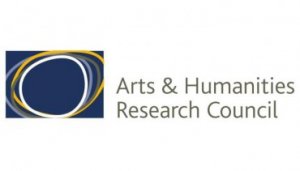Equality, Diversity & Inclusion Engagement Fellowships Pilot
The funding available is intended to enable researchers to engage a variety of relevant stakeholders with their research, to embed their work into policy and practice, and to work with relevant communities to realise the full potential benefits of their research. The Fellowships will therefore be inherently impact-focussed and cannot be used to conduct substantial new research. For the purpose of this pilot call the focus is on the UK context, whilst recognising the potential cross-cultural value of internationally collaborative and connected research.
Many arts and humanities researchers working on the culture, history, literature, languages, though (and so on) of specific areas, regions and countries would consider the process and practice of engagement with stakeholder communities as a vital component of their research. It is precisely this group of researchers that these Fellowships are aimed at, as success will depend on the ability to engage different groups with their research, work effectively within established networks and create valuable new partnerships. The Fellowship should also aim to strengthen the disciplines, communities and institutions it is embedded within, so there will be an expectation that award holders will build in development opportunities for junior colleagues, practitioners or partners who have potential to enhance the ED&I aspects of their work.
In line with the pilot nature of this call, we would be interested to receive feedback from researchers who believe they may meet the criteria for the award of a Fellowship but have been unable to apply due to eligibility requirements, or other barriers.
Funding will be provided for researchers who have a strong track record of integrating their research within communities, engaging stakeholders with their research and/or communicating with the public. Therefore, in order to be eligible for this scheme, proposals need to outline how they plan to engage stakeholders such as:
- Policymakers across the UK, including Westminster and Whitehall; Devolved Governments; Mayors and Local Government; and any relevant informal or community-based policy structures.
- The general public; people living in recognised or informal communities, and organisations or groups affiliated with, or a part of, such communities
- Institutions, including businesses (including but not limited to the creative industries); employers and service providers; cultural institutions (GLAM and heritage organisations etc.) and the media.
- New disciplinary networks that have been identified as having particular potential for collaboration in the topic area.
